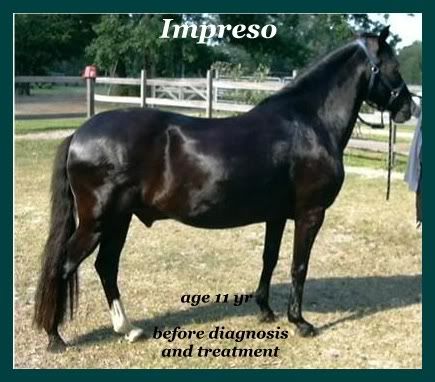
Vet Report:
August 2005: Colic of unknown origin, shoulder lameness.
Diagnosis: PSSM and arthritis RF and LF.
May 2006: Examining veterinarian noted obscure lameness, fetlock pain, and conformational changes including LF & RF fetlock enlargement, lesser in RR/LR. Suspensory ligament enlargement in all four legs, enlargement in SL branches. Wind puffs in all four fetlocks, change in fetlock angles.
Ultrasound diagnosis: Severe quadrilateral DSLD (confirmed by Dr Mero)
Nov 06: Follow-up Ultrasounds (see before and after images below) on Impreso showed significant improvement almost across the board from May '06 to Nov '06 while on the treatment recommended by Dr Kellon. Palpations showed some mostly minor pain responses in some areas of the suspensories. No pain in the deep & superficial flexors except for very minor in the left rear deep digital flexor. (In May, he was in excruciating pain in all flexor tendons). Vet noted no lesions within tendons/ligaments at this time. Comparison data below from May '06 ultrasounds and Nov '06 ultrasounds:
Area of Concern
|
May 06
|
Nov 06
|
Fetlock Enlargement
|
Yes, in all
|
None
|
Suspensory Ligament (SL) Enlargement
|
Yes, in all
|
Yes in LF & LR
No in RF Very minimal RR |
Wind-puffs
|
Yes LF & RF, mild
Yes in RR & LR |
None
|
Ultrasound Measurements
| |||||
LF Leg
|
RF Leg
|
RR Leg
|
LR Leg
| ||
Suspensory Body
|
May
|
1.75 cm2
|
2.01 cm2
|
2.26 cm2
|
2.01 cm2
|
Nov
|
1.50 cm2
|
1.50 cm2
|
1.75 cm2
|
1.53 cm2
| |
Lateral
Branch |
May
|
1.25 cm2
|
0 .78 cm2
|
1.09 cm2
|
1.09 cm2
|
Nov
|
1.09 cm2
|
0.94 cm2 *
|
0.75 cm2
|
0.94 cm2
| |
Medial
Branch |
May
|
1.09 cm2
|
1.09 cm2
|
0.87 cm2
|
1.09 cm2
|
Nov
|
0.87 cm2
|
0.78 cm2
|
0.75 cm2
|
0.94 cm2
| |
Note: table color added only for reading clarity
Photos and Ultrasounds:
Ultrasound photos (before entering Dr Kellon's study):






Follow up Ultrasounds:
Prior symptoms: At age 4, crest tipped and was gelded. I purchased him at age 4 1/2. He was ridden extensively on trail and shown.Age 9: Had muscle spasm in left hip and fell with rider while warming up at a horse-show, got up limping. Previous vet exams showed no problems. Thorough vet exam at veterinary school immediately after the fall showed no problems, nor did vet exams upon return home. Horse was lame and put on pasture rest. After length of time recommended by veterinarian and no longer showing any lameness, horse was returned to light work. He tolerated this well and showed no lameness. However, he experienced severe colic of unknown origin. Treatment at veterinary school consisted of lavage and inpatient stay of three days for monitoring. Recovery was declared successful and he returned home. A month later, returned to light riding, increased as time went on and seemed to tolerate well. No problems noted.Age 10: Onset of migrating lameness. Put on pasture rest again. In the fall of 2005, showed pain nearly everywhere, including all four legs and was diagnosed with PSSM. At that time, he was put on IR diet and improved greatly; however, as pain resolved, lameness became more profound. By early 2006, he was dead lame and moved with a great amount of discomfort. There was still no definitive diagnosis by a number of veterinarians. Due to the pain he was in, we were considering euthanasia.In May of 2006, I discovered the DSLD Equine list and found he fit a number of symptoms, including loose skin. Following exam using Dr. Mero's protocol and ultrasounds, Dr. Mero consulted and confirmed diagnosis of quadrilateral dsld.In late May 2006, Impreso was started on Dr Kellon's supplement / treatment study and supplemented with magnesium citrate and cinnamon. He has steadily shown a decrease in pain and general improvement in attitude, movement, elasticity of skin, and internal status of legs as shown by ultrasounds performed late Nov. 2006. Lameness, which is sometimes evident, is approximately grade 1.
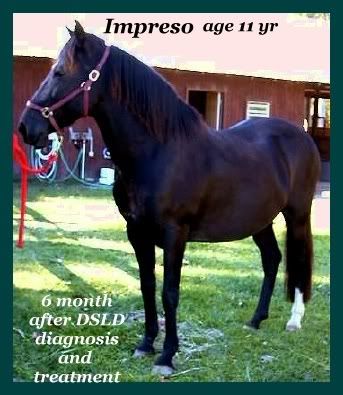
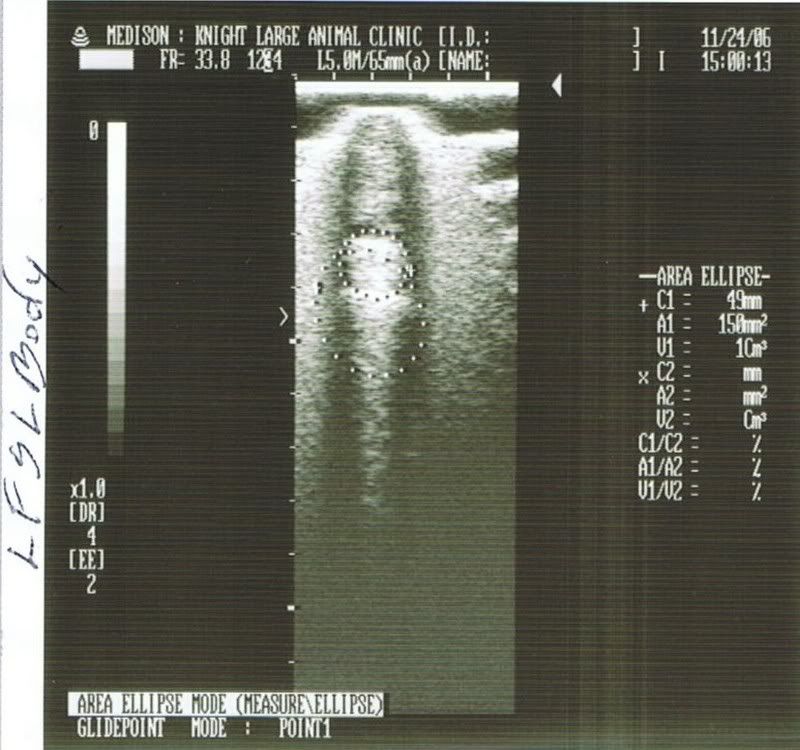
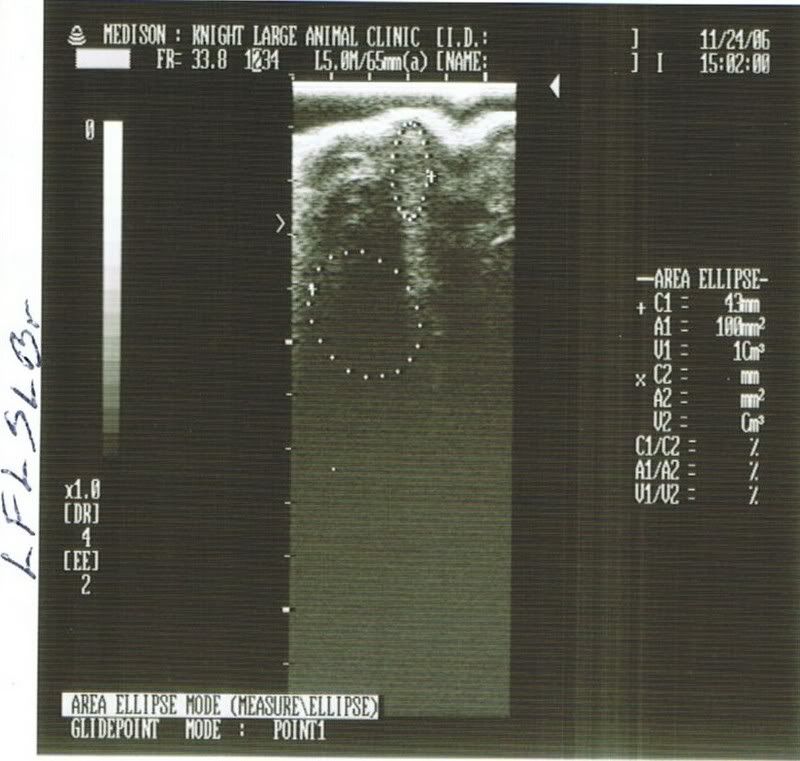
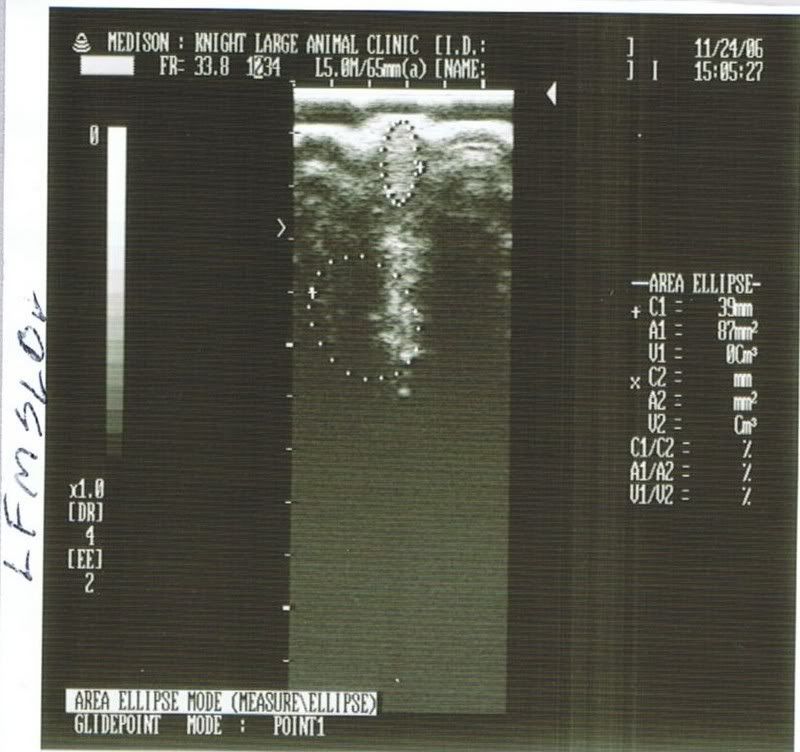
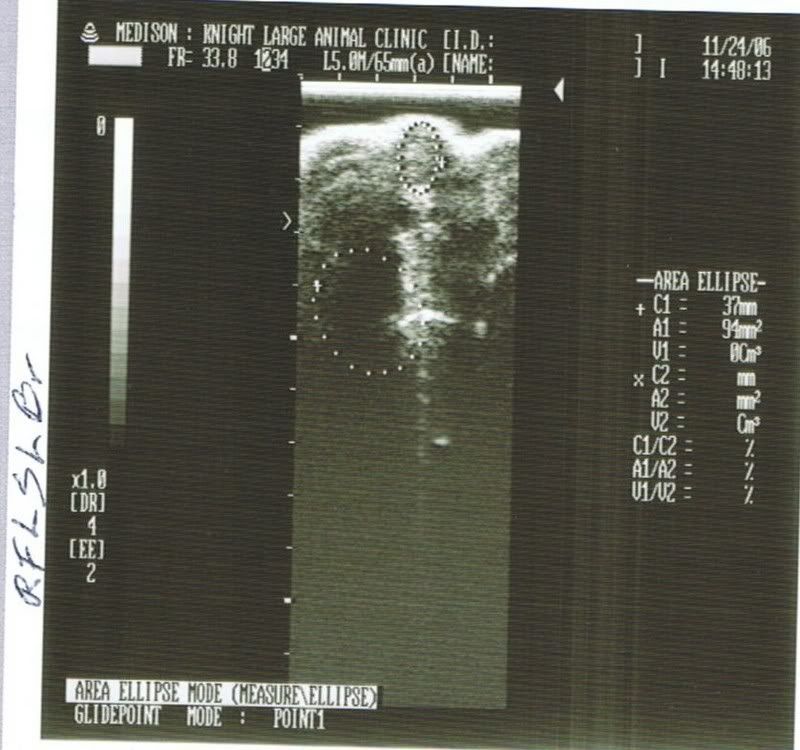
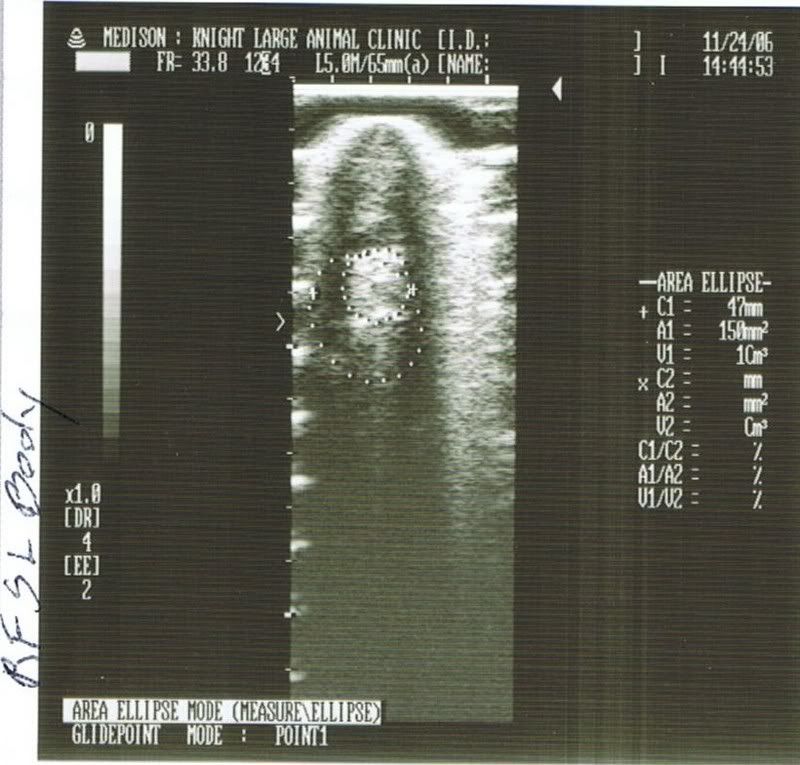
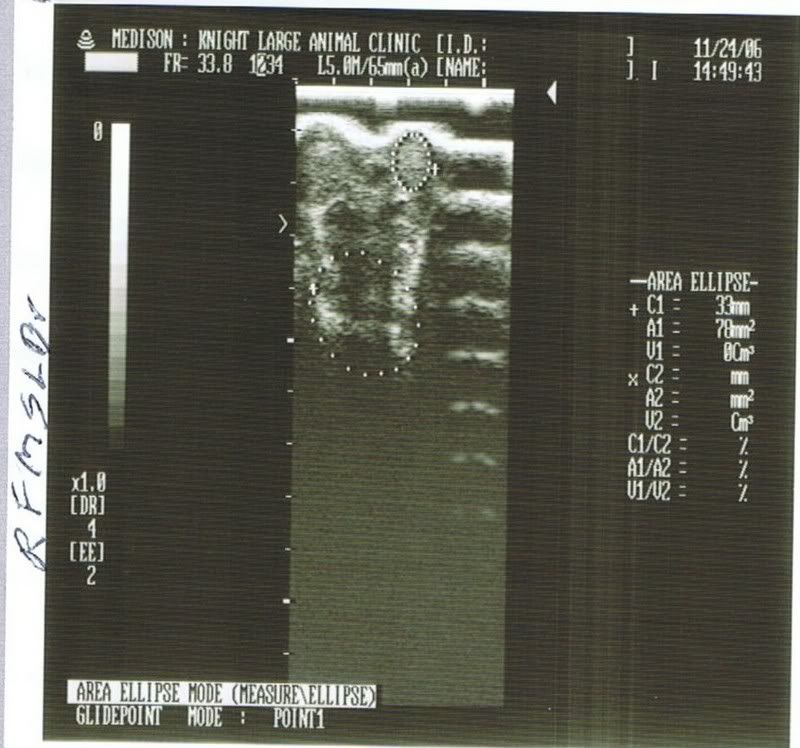
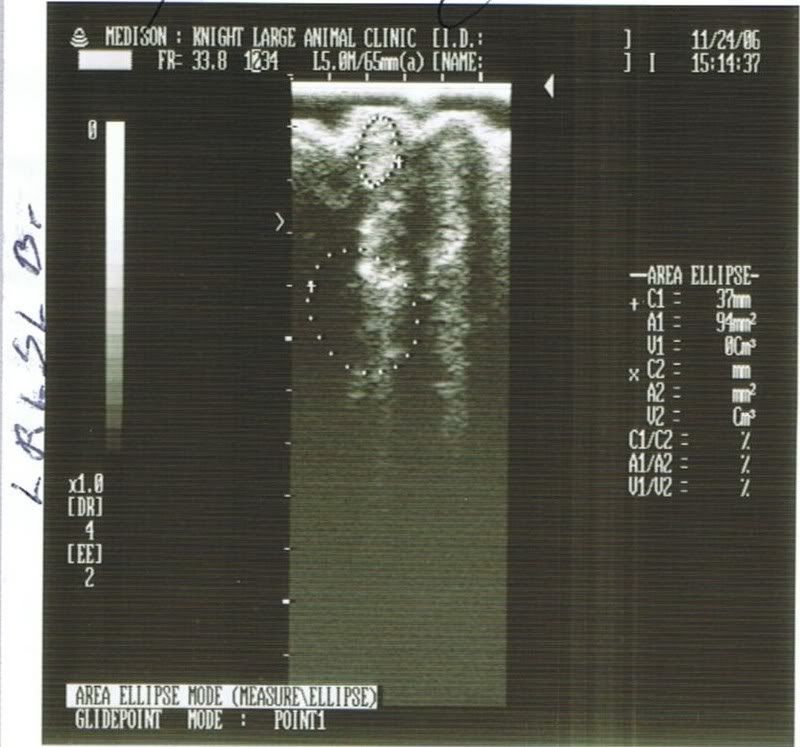
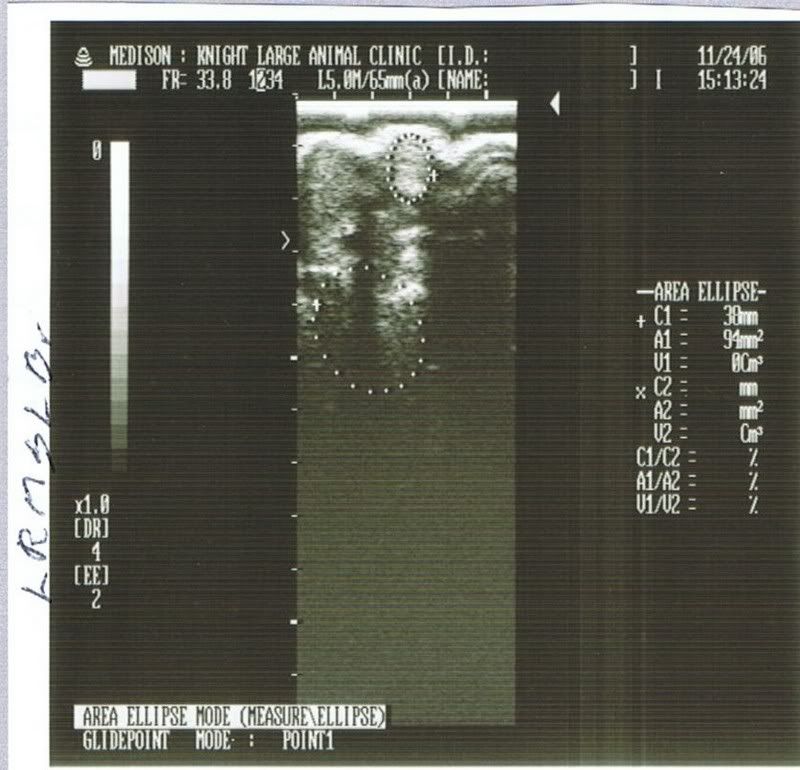
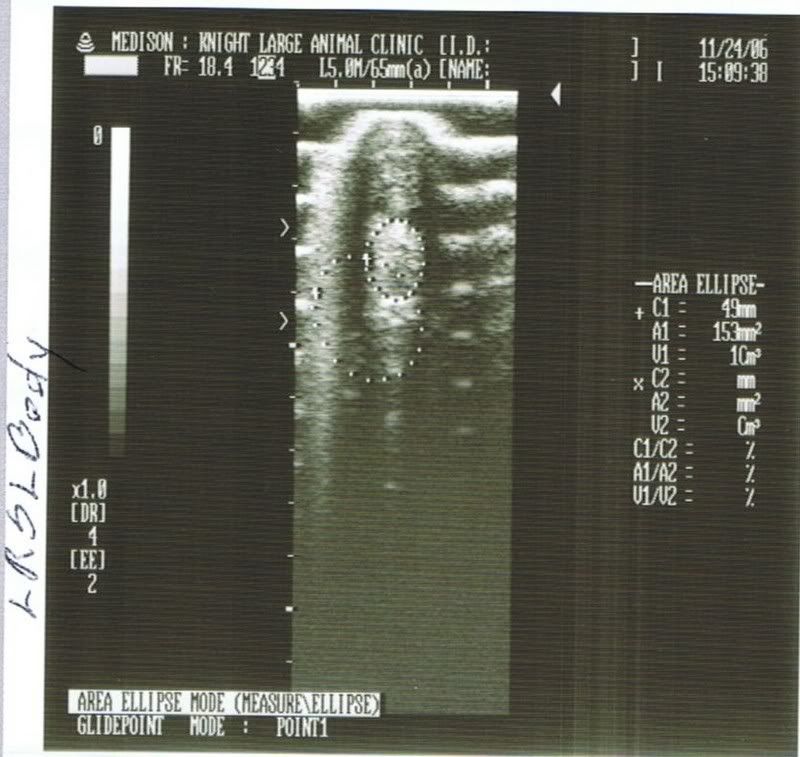
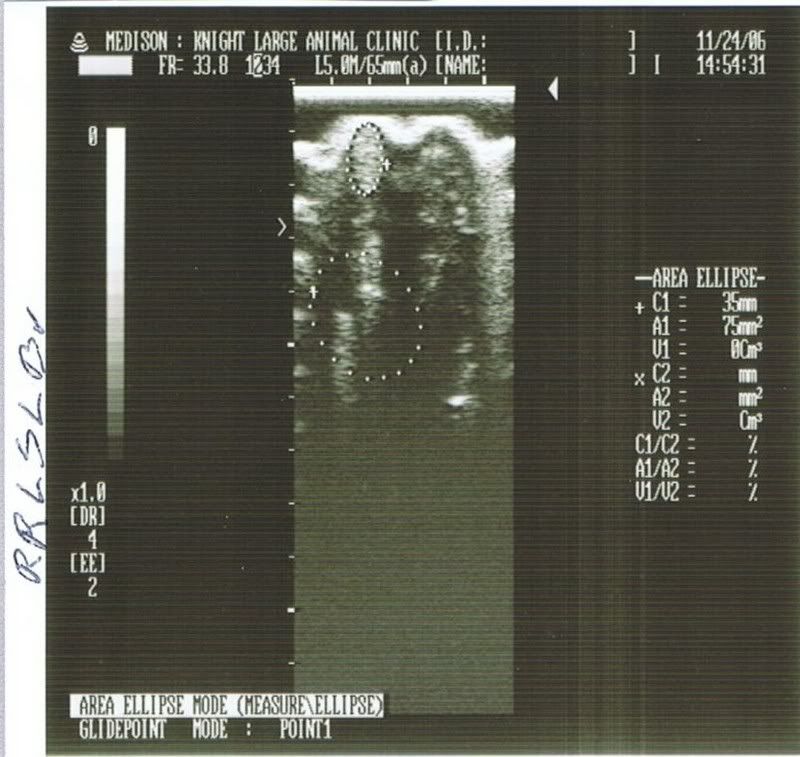
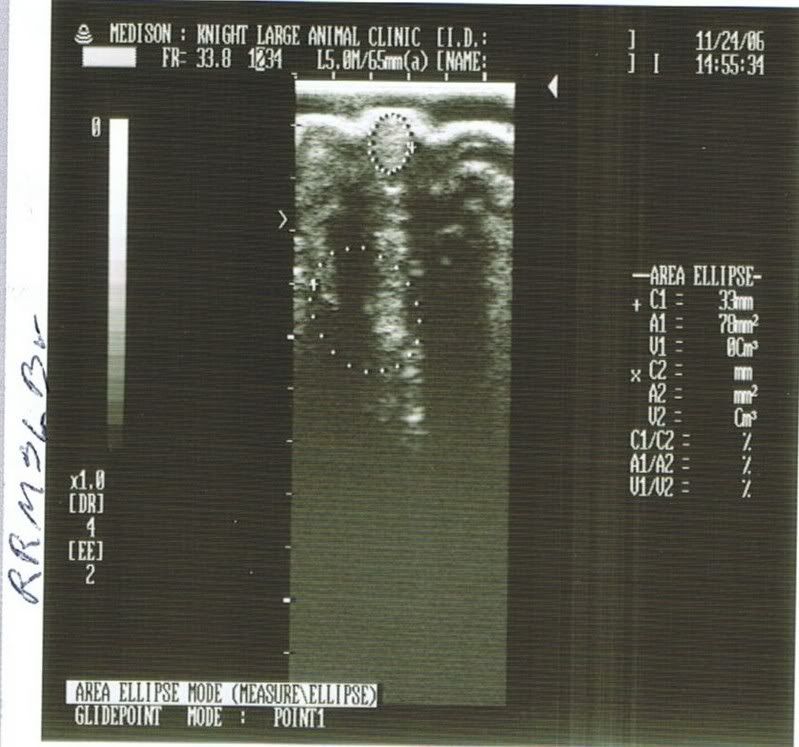
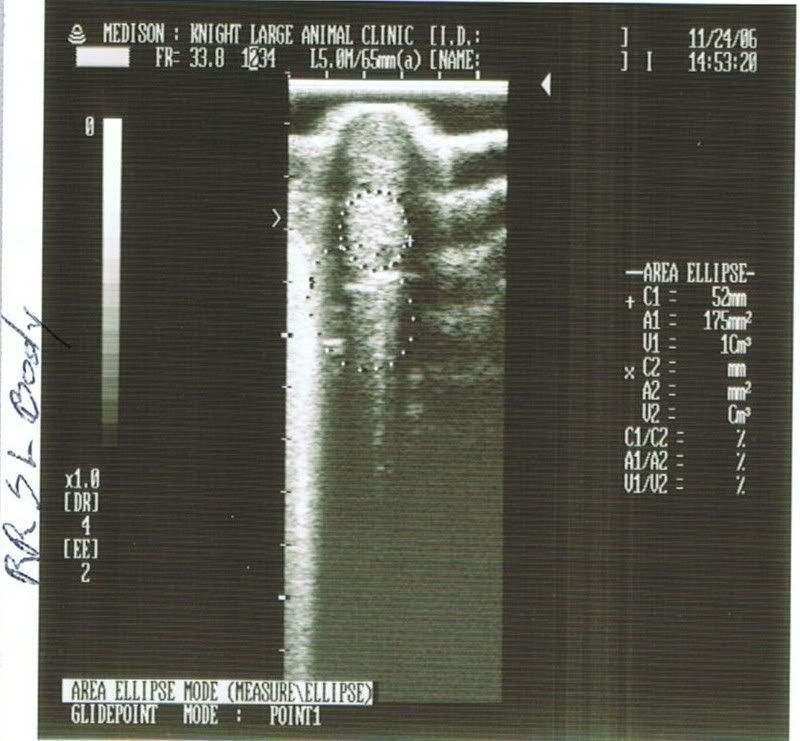

No comments:
Post a Comment